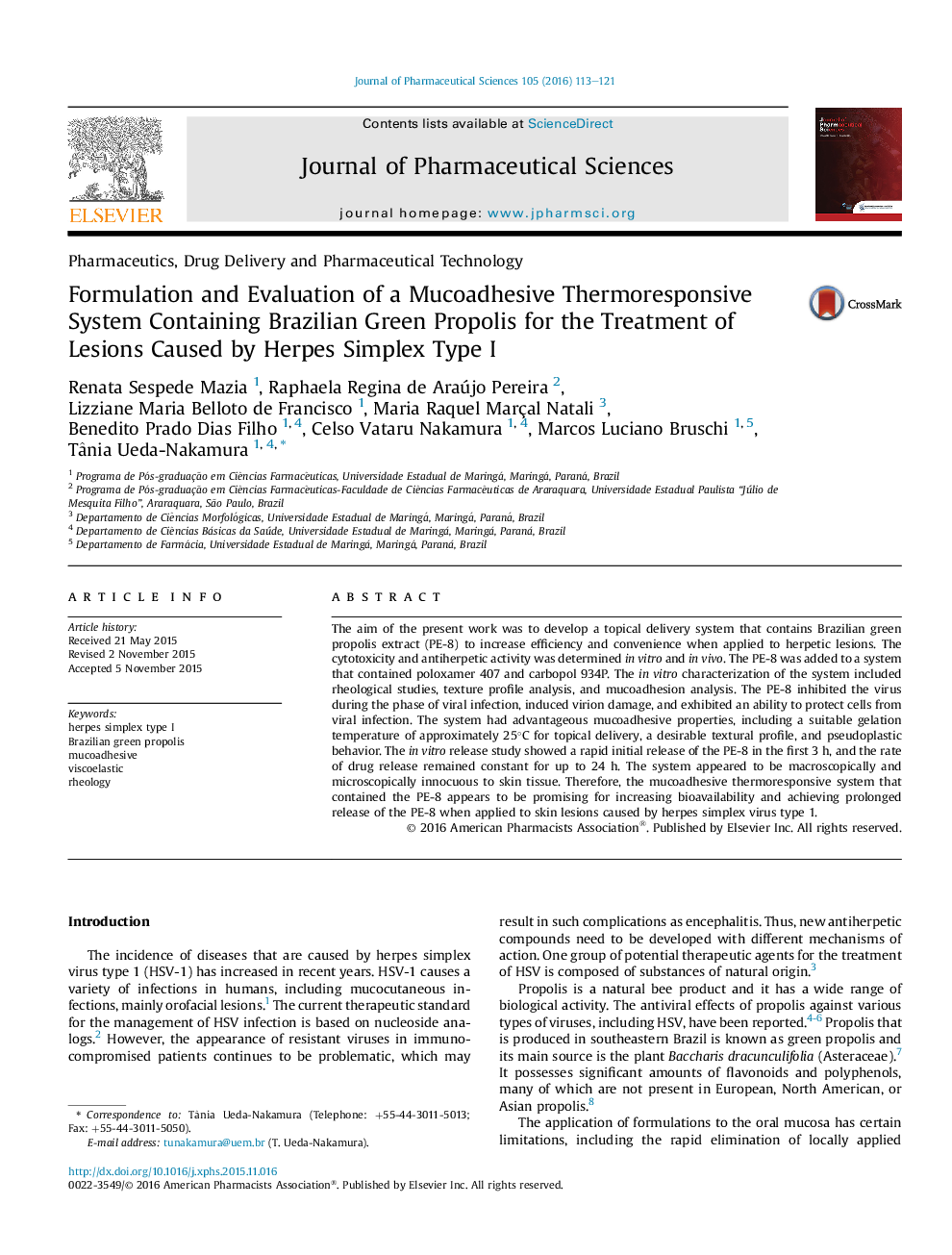| Article ID | Journal | Published Year | Pages | File Type |
|---|---|---|---|---|
| 2484444 | Journal of Pharmaceutical Sciences | 2016 | 9 Pages |
Abstract
The aim of the present work was to develop a topical delivery system that contains Brazilian green propolis extract (PE-8) to increase efficiency and convenience when applied to herpetic lesions. The cytotoxicity and antiherpetic activity was determined in vitro and in vivo. The PE-8 was added to a system that contained poloxamer 407 and carbopol 934P. The in vitro characterization of the system included rheological studies, texture profile analysis, and mucoadhesion analysis. The PE-8 inhibited the virus during the phase of viral infection, induced virion damage, and exhibited an ability to protect cells from viral infection. The system had advantageous mucoadhesive properties, including a suitable gelation temperature of approximately 25°C for topical delivery, a desirable textural profile, and pseudoplastic behavior. The in vitro release study showed a rapid initial release of the PE-8 in the first 3 h, and the rate of drug release remained constant for up to 24 h. The system appeared to be macroscopically and microscopically innocuous to skin tissue. Therefore, the mucoadhesive thermoresponsive system that contained the PE-8 appears to be promising for increasing bioavailability and achieving prolonged release of the PE-8 when applied to skin lesions caused by herpes simplex virus type 1.
Related Topics
Health Sciences
Pharmacology, Toxicology and Pharmaceutical Science
Drug Discovery
Authors
Renata Sespede Mazia, Raphaela Regina de Araújo Pereira, Lizziane Maria Belloto de Francisco, Maria Raquel Marçal Natali, Benedito Prado Dias Filho, Celso Vataru Nakamura, Marcos Luciano Bruschi, Tânia Ueda-Nakamura,
